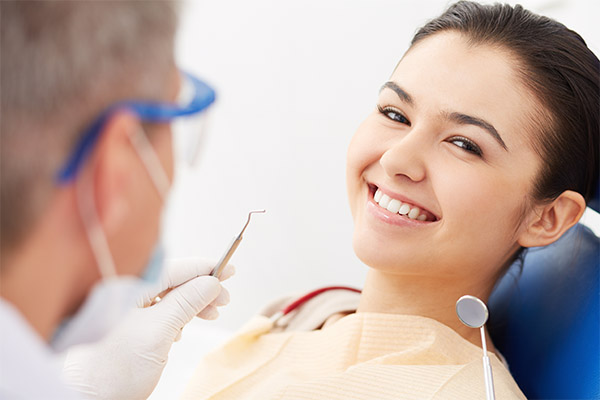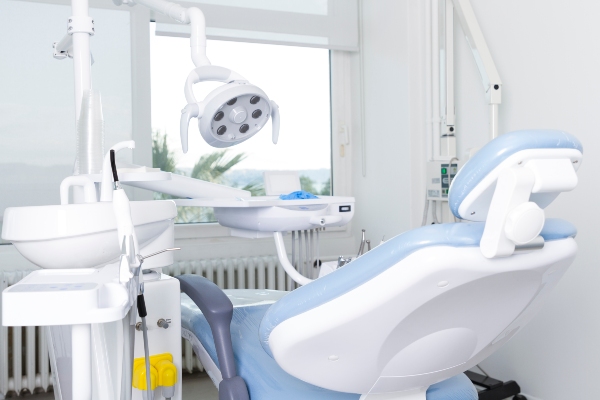The Process for Getting Dentures Oaklyn, NJ
The more you know what to expect when getting dentures, the better prepared you will be for a smooth transition. Although there are different types of dentures, most people will still need a series of appointments before the completion of their dentures. The process for getting dentures involves having teeth extracted, impressions taken, temporary dentures fitted, and permanent dentures adjusted.
A fitting appointment is available at Shari L. Hyder, DMD in Oaklyn and the surrounding area. Getting dentures may not only improve a person's appearance but also restore the ability to eat and speak normally. Although chewing power with dentures is not 100% of what it would be with healthy natural teeth, it is a significant improvement from eating with missing or damaged teeth. We can help you prepare yourself for the process of getting dentures.
At Shari L. Hyder, DMD, our caring and knowledgeable staff takes the time to get to know each patient. This way, we can provide the highest level of personalized care possible. Call us at (856) 626-5047 to get started on your new smile.
The Preliminary Denture Appointment
Depending on the state of a patient's health, Shari L. Hyder, DMD may recommend full extraction of all their natural teeth before moving on to the restoration step. However, this is not always the case. The first appointment consists of taking images and impressions of the patient's mouth, with or without extractions.
Depending on the patient's custom treatment plan, the first appointment may also involve Shari L. Hyder, DMD fitting the patient with immediate dentures. However, immediate dentures are only a temporary solution until the permanent dentures are ready.
“The first appointment consists of taking images and impressions of the patient’s mouth, with or without extractions.”
Immediate Dentures
According to an article in the journal Annali di Stomatologia, temporary immediate dentures can improve a patient's appearance as well as maintain the tone of the facial muscles and reduce post-extraction pain. Patients who receive immediate interim dentures do not have to go without teeth during the healing process while they wait for the creation of their permanent dentures.
During the recovery period, the dentist will see the patient frequently to make sure that everything is going as it should. Oral hygiene is especially important to reduce the likelihood of infection and promote healing.
“Patients who receive immediate interim dentures do not have to go without teeth during the healing process while they wait for the creation of their permanent dentures.”
Permanent Dentures
Permanent dentures are the final product that the patient will wear daily. They have a useful life of approximately five to 10 years with proper care. Therefore, a patient should expect to get new permanent dentures eventually.
As a person ages, jawbone and gum tissue tends to shrink, especially after having teeth extracted. However, this shrinkage is not a reason to get a new set of dentures, as permanent dentures can be rebased or relined to account for changes in the jawbone and gums.
“Permanent dentures can be rebased or relined to account for changes in the jawbone and gums.”
Check out what others are saying about our dental services on Yelp: The Process for Getting Dentures in Oaklyn, NJ
Fitting Appointments for Dentures
Having well-fitting dentures is vital. Dentures that do not fit well may rub a person's gums and cause soreness and irritate the tissue. Aside from being uncomfortable for the patient, ill-fitting dentures also pose a health risk.
During the first fitting appointment and before the finalization of the permanent dentures, the patient may have the denture fit checked using wax ridges where the prosthetic teeth will eventually sit. The patient will also have the fit checked again before going home with temporary or permanent dentures to make sure the prostheses do not pinch the cheeks or slide around on the gums. The dentist will also check the patient's new bite to ensure that the upper and lower dentures align properly.
Shortly after the insertion appointment for permanent dentures, typically between 24 and 72 hours after insertion, the patient will need a follow-up appointment. The initial follow-up is to ensure the patient is healing well and to make preliminary adjustments to the dentures. The patient should schedule another follow-up about a week later.
“The initial follow-up is to ensure the patient is healing well and to make preliminary adjustments to the dentures.”
Questions Answered on This Page
Q. What happens during the preliminary denture appointment?
Q. When do I need immediate dentures?
Q. How long do permanent dentures last?
Q. What happens during a denture fitting appointment?
Q. What should I do if my dentures start to feel uncomfortable?
People Also Ask
Q. Why are dentures a preferred treatment?
Ongoing Care for Denture-Wearers
Oral health must be a priority even for a patient who has no natural teeth remaining. A patient with a full or partial set of dentures needs to visit the dentist regularly for cleanings and checkups. Any time the dentures start to shift or feel uncomfortable, the patient should make an appointment to have them examined and adjusted.
As explained in the Journal of the American Dental Association, due to changes in bone structure following extractions, patients will need their dentures adjusted within weeks of getting immediate dentures and then again several months later. After that, some patients may not need adjustments for several years; others will continue to need them more frequently. As a patient's jawbone and gums change, there are two primary methods for adjusting the dentures for optimum comfort and health:
Denture Relining
As the jaw and gums shrink, they move away from the base of the denture, creating gaps. Shari L. Hyder, DMD can reline a set of dentures by adding material to the existing base to fill the gaps and restore a snug fit. Sometimes, however, a patient's oral structures change so much that simple relining is not enough.
Denture Rebasing
When relining is not an option, Shari L. Hyder, DMD can rebase the dentures. This process preserves the existing prosthetic teeth but replaces the base material. Shari L. Hyder, DMD will take new images and impressions to ensure the new base will be a good fit for the patient. After the completion of the new base, fittings can continue as before.
“Any time the dentures start to shift or feel uncomfortable, the patient should make an appointment to have them examined and adjusted.”
Frequently Asked Questions About What To Expect When Getting Dentures
Q. How long is the process of getting dentures?
A. Getting dentures usually takes several appointments. Depending on the type of dentures, it could be a quick process or last several months. Ongoing follow-up care is essential.
Q. How can I know what to expect when getting dentures?
A. Consult with your dentist. The process for getting dentures varies depending on the type of dentures, the patient's current health, and other factors. Doing research ahead of time will help reduce anxiety.
Q. Will I still need fitting appointments after getting my dentures?
A. Proper denture fit is essential, both to increase comfort and to reduce the risk of complications. Therefore, ongoing fitting appointments are necessary. After the patient heals and receives permanent dentures, the fit will change over time, and dentures will need to be adjusted.
Q. What type of dentures should I get?
A. What type of dentures are best for a patient's particular needs depends on several different factors. Some options may be partials, full conventional dentures, or implant-supported dentures. Each patient needs a comprehensive consultation with a dentist to find out which type may be appropriate.
Q. Should I get dentures or implants?
A. Choosing between dentures and implants is a big decision. Not every patient is a candidate for implants, nor is every patient a candidate for dentures. Only a comprehensive oral exam with a qualified professional can let you know what your most suitable options are.
Q. Why do my dentures fit differently than before?
A. Over time, a person's jaw and gums change shape. Therefore, even custom-made dentures that fit flawlessly at first will seem to have changed. As the patient's mouth changes, so their dentures will need to be adjusted accordingly.
Denture Terminology
Call Us Today
Whether you are new to wearing dentures or need an adjustment to your existing ones, call us today at 856-626-5047 to make an appointment.
Helpful Related Links
- American Dental Association (ADA). Glossary of Dental Clinical Terms. 2022
- American Academy of Cosmetic Dentistry® (AACD). Home Page. 2022
- WebMD. WebMD’s Oral Care Guide. 2022
About our business and website security
- Shari L. Hyder, DMD was established in 1992.
- We accept the following payment methods: American Express, Cash, Check, Discover, MasterCard, and Visa
- We serve patients from the following counties: Camden County
- We serve patients from the following cities: Oaklyn, Collingswood, Haddon Heights, Audubon, Haddonfield, Bellmawr, Cherry Hill, Gloucester City, Barrington, and Haddon Township
- National Provider Identifier Database (1073517322). View NPI Registry Information
- Healthgrades. View Background Information and Reviews
- Norton Safe Web. View Details
- Trend Micro Site Safety Center. View Details
Back to top of The Process for Getting Dentures





